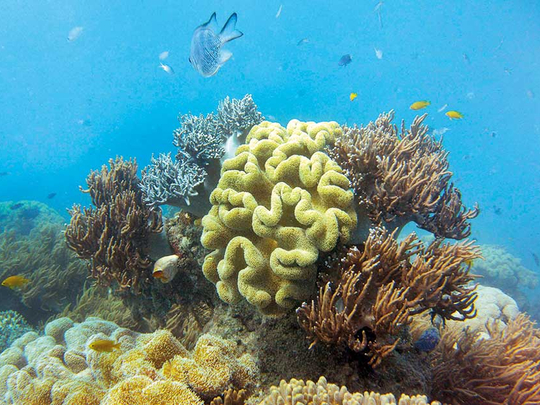
In an exciting discovery, scientists, last week found an enormous coral reef in the Great Barrier Reef, the first to be discovered in over 120 years.
According to the Schmidt Ocean Institute, the newly-found “detached” reef measures more than 500 meters tall, which makes it taller than some of the world's highest skyscrapers like the Empire State Building (381 meters to the top floor), the Petronas Twin Towers (451.9 meters), and the Sydney Tower (305 meters).
A "detached" reef refers to a reef bedded to the ocean floor and is not part of the main body of the Great Barrier Reef.
The discovery comes as a relief, as the Great Barrier Reef, the largest in the world, is home to more than 1,600 species of fish and over 400 species of hard corals. But, it is facing an ecological catastrophe, as more than 50 per cent of its corals have died in the last 25 years, mostly due to climate change causing mass bleaching events. The reef is at risk of losing its coveted World Heritage status because of ocean warming damaging its health.
The massive reef was discovered on October 20. According to international news reports, it was a team of scientists led by Dr. Robin Beaman who spotted the reef off North Queensland while on an expedition aboard research vessel Falkor. They found that the base of the "blade-like" reef is nearly a mile wide and rises over 1,600 feet to just 130 feet below the ocean's surface.
It sits among a cluster of seven other detached reefs that were mapped in the 1800s, however the marine ecosystem on the top of this latest find appeared to be more vibrant than the others. “It's got a thriving coral community at the pinnacle," said the research leader, Dr Beaman, from James Cook University.
The scientists were on a 12-month exploration of the ocean around Australia to map the seafloor of the northern Great Barrier Reef, Australian ocean research organisation Schmidt Ocean Institute said. Beaman said the team is "surprised and elated" by the discovery.
Calling it an “unexpected discovery”, Wendy Schmidt, co-founder of Schmidt Ocean Institute, said: "Thanks to new technologies that work as our eyes, ears, and hands in the deep ocean, we can explore like never before. New oceanscapes are opening to us, revealing the ecosystems and diverse life forms that share the planet with us."












